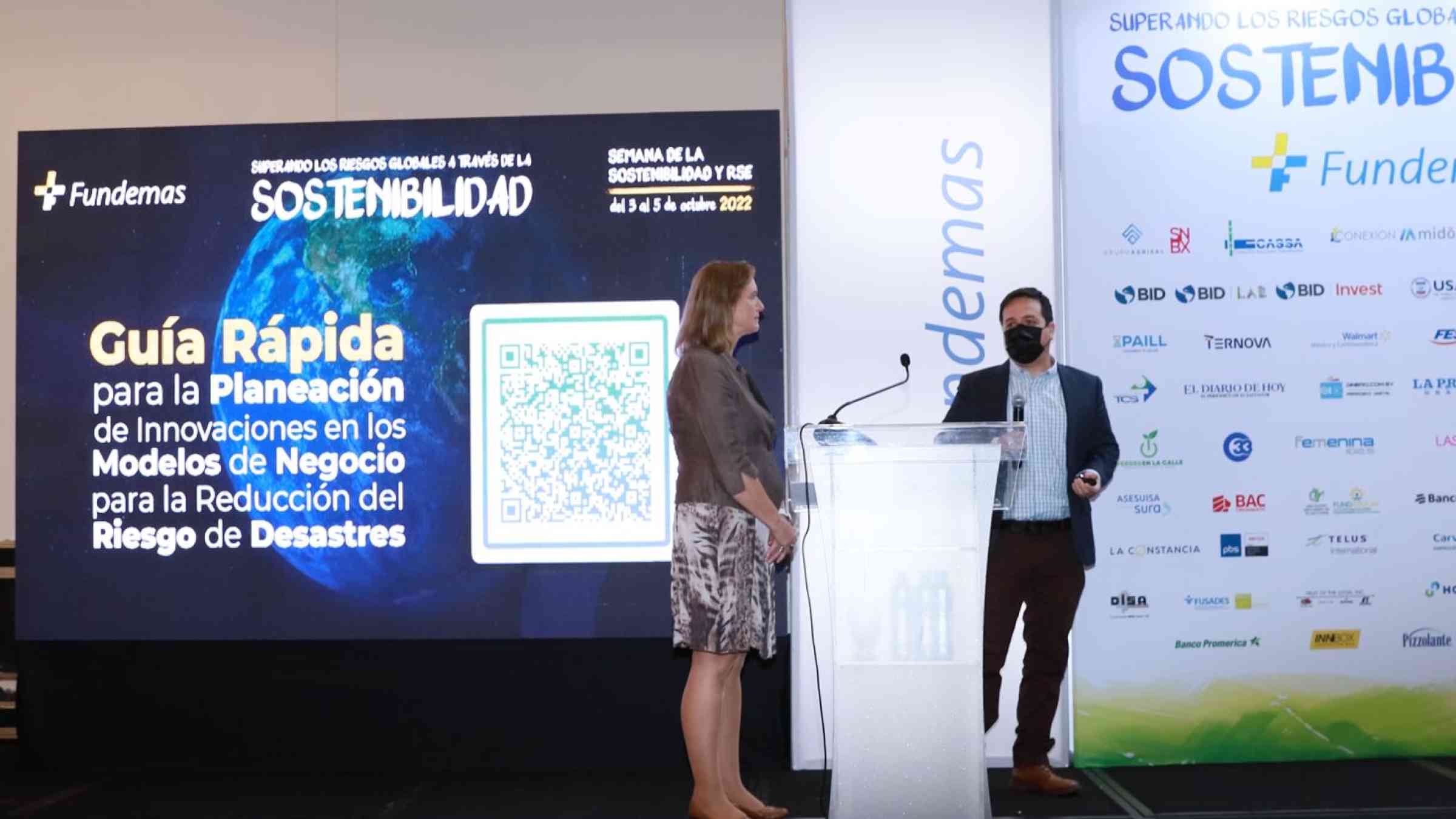Private sector innovation guide for disaster risk reduction presented in El Salvador

During the recent Sustainability Week in El Salvador, organized by FUNDEMAS -a member of ARISE (the Private Sector Alliance for Disaster Resilient Societies) and its focal point in El Salvador-, the Quick Guide for Planning for Business Model Innovations for Disaster Risk Reduction (available only in Spanish: Guía rápida para planeación de innovaciones en los modelos de negocio para la reducción del riesgo de desastres) was launched and a workshop with national companies was conducted.
The guide was commissioned by UNDRR - Regional Office for the Americas and the Caribbean and was co-developed by the TRANSFORM Project of the University of Waterloo (Canada) and the Central American ARISE networks and included insights by twenty companies in the region.
As part of these efforts, Grupo Financiero DaVivienda convened companies in the Sustainability Club to attend a workshop conducted by Dr José Di Bella, researcher in the TRANSFORM project of the University of Waterloo (Canada). During the workshop, more than thirty companies from a variety of sectors worked with the document.
The Guide offers support to companies in identifying threats and risks for their operations, their supply chains and the communities where they operate. In addition, examples of how to improve coordination and decision-making with partners to invest in various practices aimed at disaster risk reduction were recognized.
The workshop was an opportunity to reflect on how practices in business model innovation can contribute to the priorities of the Sendai Framework for Disaster Risk Reduction (2015-2030) and the ways in which the private sector can promote disaster resilience. Furthermore, the workshop was used as a pilot experience of work with groups of companies in identifying system-oriented business model solutions.
Attendees also explored the less technical aspects of innovation and knowledge of risk and sustainability through partnerships, local learning with communities, creativity and co-production of solutions for sustainability and resilience to local disasters.
The goal in promoting the implementation of practices for risk-informed business innovation processes is to boost a closer relationship between the private sector and the efforts of communities and cities to become more resilient to disasters. This practical exercise with companies was an opportunity to exchange ideas at the managerial level that can help the planning of and decision-making on innovations that contribute to disaster risk reduction.
UNDRR and ARISE national networks will continue to promote the Guide among their members and the business community to accelerate the implementation of new practices for DRR and sustainability in countries in the region.